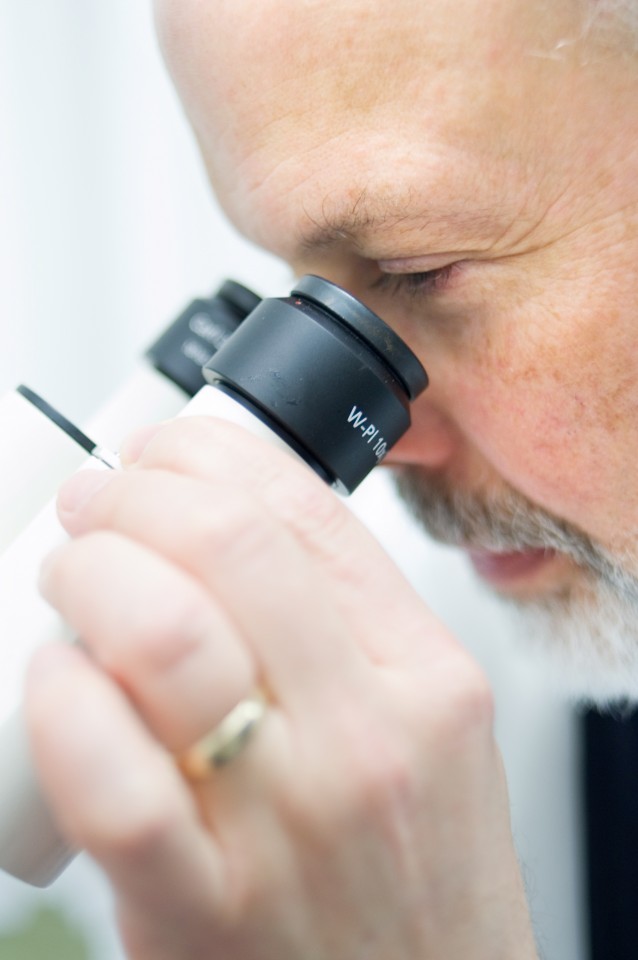A made-in-Canada treatment for Alzheimer’s disease could be closer to patients thanks to a new technology developed by a Faculty of Medicine neuroscientist, Neil Cashman.
Dr. Cashman, Professor in the Division of Neurology, has developed an immune-based treatment that targets the toxic form of amyloid-beta, a protein that forms tiny fibers, called plaques, in the brains of Alzheimer’s sufferers.
To date, therapies have been developed that target the plaques. More recent research has shown that a specific form of this protein, which exists prior to their formation into plaques, is what actually attacks the brain and causes Alzheimer’s.
Dr. Cashman, a member of the Brain Research Centre of UBC and Vancouver Coastal Health, has discovered a novel way of identifying this short-lived, highly-toxic form of the protein (known as the abeta oligomer) and has produced antibodies that specifically attach to it.
This has several advantages in treating Alzheimer’s: it may provide a very effective early diagnostic for the disease; it allows for the development of a therapy to stop the disease’s progression; and ultimately it could lead to the development of a preventative vaccine.
The discoveries made by Dr. Cashman came from research funded through the Canadian Institute for Health Research and then through a research collaboration between UBC, the federally-funded Prionet National Centre of Excellence and Winnipeg-based Cangene Corporation, one of the nation’s oldest and largest biopharmaceutical companies. Following this collaboration, Cangene licensed the discovery.
“We are pleased to have the opportunity to collaborate with Dr. Cashman who is an expert in misfolded protein diseases and help advance his ground-breaking research in Alzheimer’s Disease” says Laura Saward, Cangene’s Chief Scientific Officer. “While this work is in its early stages, it is showing promise for the development of a novel immunotherapy to address this devastating disease and fits Cangene’s refocused R&D strategy.”
“This is an all-Canadian solution in terms of its discovery, development and advancement towards the clinic,” says J.P. Heale, Associate Director of UBC’s University-Industry Liaison Office. “The partnerships developed to advance Dr. Cashman’s outstanding research are an excellent example of how Canadian universities, funding agencies and industry partners can work together to tackle a devastating disease of national and global importance.”
